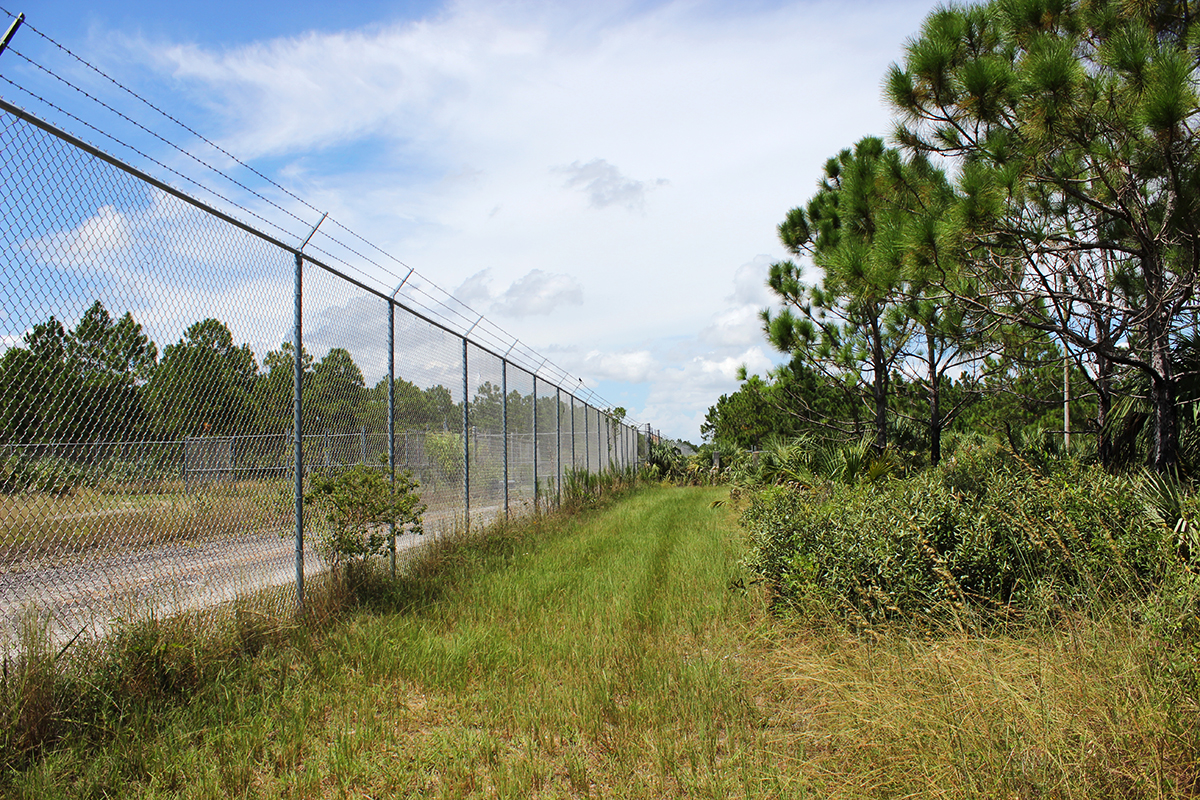
In 2014, the University of Miami sold 88 acres of an endangered habitat for $22 million to Ram Realty Services (Ram), which plans to develop establishments like a 158,000-square-foot Walmart, a Chili’s restaurant and about 900 apartments on the land.
Since then, activists and concerned citizens are protesting the sale, hoping to see the decision overturned.
The land, a pine rockland ecosystem unique to South Florida and the Bahamas, has a globally imperiled conservation status. According to savethepinerocklands.com, the habitat used to span roughly 185,000 acres in Miami-Dade County. Now, only about 2 percent of this habitat remains.
Steve Leidner is a co-director of the Miami Pine Rocklands Coalition (MPRC), a group working to prevent development of the pine rocklands since its sale was announced last year. He said that members of the coalition are not just environmentalists.
“Quite interestingly, the coalition is a very diverse organization of people, many of which were not formally involved with an environmental organization,” Leidner said. “This issue is like a tipping point. This is the last major piece of this habitat in Dade County, basically what Dade County was before everyone moved here. We’ve ruined every other piece of it, can’t this last piece of it just be preserved?”
The habitat is also home to many endangered species, like the Miami tiger beetle. Development of the land could harm or remove habitats, putting species at risk for extinction.
“It’s unacceptable,” Leidner said. “UM has many preservationists, and there are professors there who certainly know how unique this habitat is, where it is and how so many species that are endangered depend on this habitat for their survival. And UM, from what we could see, couldn’t have cared less.”
Al Sunshine is one of the founders of the coalition and a UM alumnus. He has been trying to uncover the reasons behind the land sale made by his alma mater.
“With such exceptional environmental programs like the Rosenstiel School and the Abess Center, we’ve been asking for a long time why the University of Miami would sell such critically endangered property,” Sunshine said. “The answer we keep getting is, ‘We didn’t know, we didn’t know.’”
Sunshine formerly worked as a reporter for CBS Miami and used his investigative skills to research the matter.
“Here’s the bottom line,” he said. “As a resident and long-time South Dade taxpayer, and University of Miami graduate and alumnus … I asked myself, ‘How could this happen?’ So I ended up going through mountains of documents and studies of building and zoning information.”
Sunshine said he uncovered studies and a Federal Register notice from the U.S. Department of the Interior concerning the rare species of the pine rocklands area.
“The cover story is ‘We didn’t know,’ but the reality is, there were 30 years of studies and records detailing that it was an environmentally sensitive habitat,” he said.
In an official UM statement, the university stated that “no environmental group ever raised any objections to the project at the public hearings or in writing.”
Laura Reynolds, a member of the environmental group Tropical Audubon Society, said members opposed development to the land at public meetings and wrote letters to President Donna E. Shalala and the Board of Trustees with no response.
Originally, UM received the land for free from the federal government. The government said that the land must be used for educational and research purposes until 2011. During this time, the university used the land for projects like a primate research center.
Sunshine said that he found citations of neglect to the land prior to its sale, including asbestos contamination and illegally dumped radioactive isotope-contaminated animals from the primate research center.
However, in an official statement, UM stated “The University acted in good faith and in compliance with all rules and regulations in its handling of the South Campus property.”
Even if the allegations are true, Leidner said he is uncertain whether or not these actions will lead to legal ramifications.
Once Coral Reef Commons is built, 40 acres of pine rocklands will remain preserved. The university explained in an official statement that the Miami-Dade County Department of Environmental Resource Management (DERM) defined these 40 acres as a Natural Forest Community (NFC) and “The University executed a management plan that guarantees the preservation of the NFC in perpetuity.”
UM student and member of the coalition Zachariah Cosner explained that burning is necessary to properly maintain the pine rocklands. This burning will help prevent an influx of invasive species. However, since these 40 acres of preserved land will be surrounded by the Coral Reef Commons development, burning may become difficult.
To ensure the preservation of land, Ram plans to submit a habitat conservation plan to the United States Fish and Wildlife Service (USFWS).
The coalition hopes to convince UM to buy the land back from Ram.
“Ultimately, we think the fair action is for UM to buy that property back and either become the stewards of it that they can be, or sell it to organizations that will make sure that the property is cared for,” Leidner said.
To do so, Leidner said that it is necessary to work with the university rather than against it.
“Personally, I don’t want to make it a battle with a winner or a loser,” Leidner said. “I want to keep my eyes on the habitat. That’s what’s important. Otherwise, it’s just a battle of wits and strategy, but it’s really about preserving something that’s very unique.”
Reynolds agrees with Leidner.
“I think UM has the ability to make anything possible if it puts money and political will behind it,” Reynolds said. “We want to work with UM to change history.”
Separately, a theme park called Miami Wilds is planned for building on adjacent pine rockland owned by Miami-Dade County. The county has reportedly given about $13.5 million to 20th Century Fox for development of the park.






